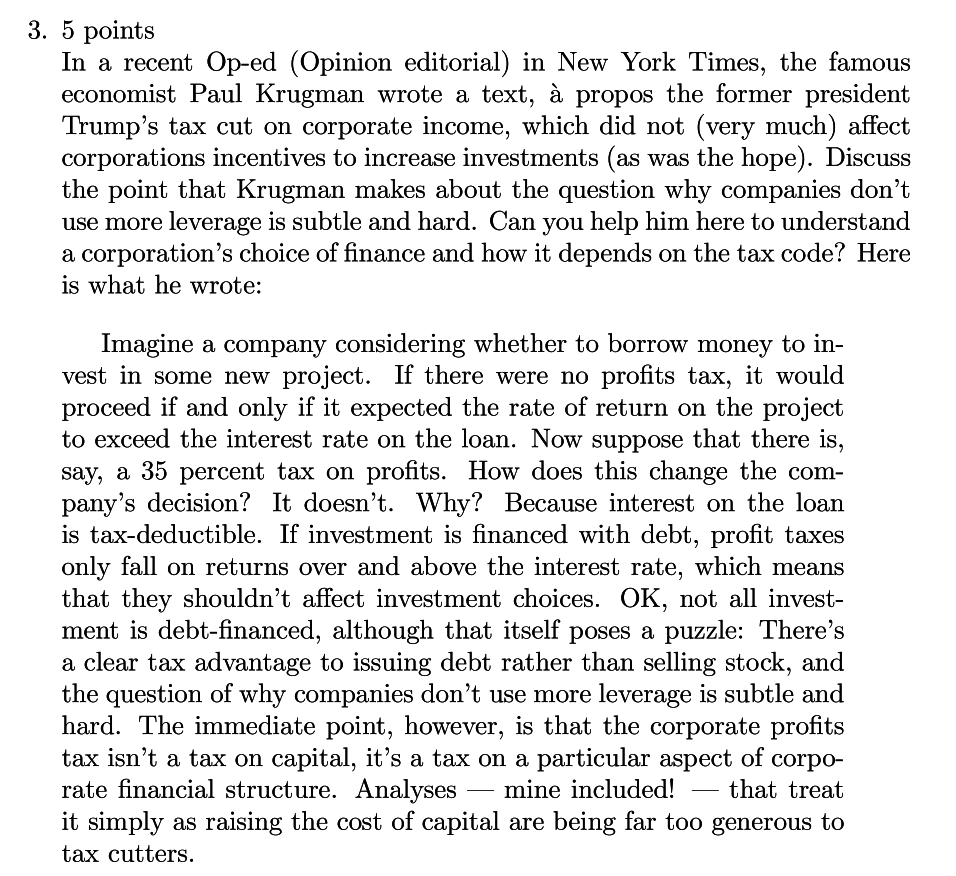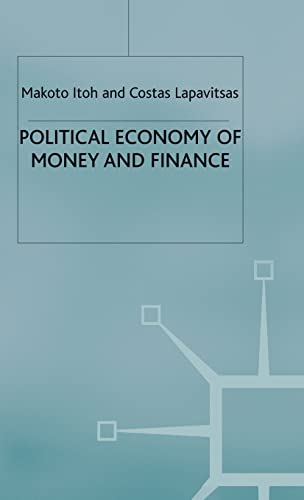
3. 5 points In a recent Op-ed (Opinion editorial) in New York Times, the famous economist Paul Krugman wrote a text, propos the former president Trump's tax cut on corporate income, which did not (very much) affect corporations incentives to increase investments (as was the hope). Discuss the point that Krugman makes about the question why companies don't use more leverage is subtle and hard. Can you help him here to understand a corporation's choice of finance and how it depends on the tax code? Here is what he wrote: Imagine a company considering whether to borrow money to in- vest in some new project. If there were no profits tax, it would proceed if and only if it expected the rate of return on the project to exceed the interest rate on the loan. Now suppose that there is, say, a 35 percent tax on profits. How does this change the com- pany's decision? It doesn't. Why? Because interest on the loan is tax-deductible. If investment is financed with debt, profit taxes only fall on returns over and above the interest rate, which means that they shouldn't affect investment choices. OK, not all invest- ment is debt-financed, although that itself poses a puzzle: There's a clear tax advantage to issuing debt rather than selling stock, and the question of why companies don't use more leverage is subtle and hard. The immediate point, however, is that the corporate profits tax isn't a tax on capital, it's a tax on a particular aspect of corpo- rate financial structure. Analyses mine included! that treat it simply as raising the cost of capital are being far too generous to tax cutters. 3. 5 points In a recent Op-ed (Opinion editorial) in New York Times, the famous economist Paul Krugman wrote a text, propos the former president Trump's tax cut on corporate income, which did not (very much) affect corporations incentives to increase investments (as was the hope). Discuss the point that Krugman makes about the question why companies don't use more leverage is subtle and hard. Can you help him here to understand a corporation's choice of finance and how it depends on the tax code? Here is what he wrote: Imagine a company considering whether to borrow money to in- vest in some new project. If there were no profits tax, it would proceed if and only if it expected the rate of return on the project to exceed the interest rate on the loan. Now suppose that there is, say, a 35 percent tax on profits. How does this change the com- pany's decision? It doesn't. Why? Because interest on the loan is tax-deductible. If investment is financed with debt, profit taxes only fall on returns over and above the interest rate, which means that they shouldn't affect investment choices. OK, not all invest- ment is debt-financed, although that itself poses a puzzle: There's a clear tax advantage to issuing debt rather than selling stock, and the question of why companies don't use more leverage is subtle and hard. The immediate point, however, is that the corporate profits tax isn't a tax on capital, it's a tax on a particular aspect of corpo- rate financial structure. Analyses mine included! that treat it simply as raising the cost of capital are being far too generous to tax cutters







